Thursday, 19th September 2013
I too welcome the Minister to the House and thank him for his comprehensive presentation on the EU directive. I could say a lot on issues related to the directive, but I intend to focus on article 25 which relates to child abuse material online. I welcome the commitments the Minister has given this morning. Among the wide-ranging provisions relating to criminal offences and sanctions in the area of sexual abuse and exploitation of children, the directive requires all member states to take the necessary measures to ensure the prompt removal of any web pages containing or disseminating child abuse material hosted on servers within their jurisdiction. It also asks member states to make appropriate safeguards to block access for Internet users within their territory of web pages containing or disseminating child abuse material hosted on servers outside of their jurisdiction.
I do not know whether the Minister’s comprehensive presentation is a sign of things to come, but I feel the Seanad’s role has been airbrushed out of it. In February 2012 we had an Independent group motion on the EU directive and the need for Ireland to block sites. At the time, I was delighted my colleagues, among them Senators Mary Ann O’Brien, Fiach Mac Conghail, Katherine Zappone, Marie-Louise O’Donnell and probably every Senator in the House, supported the motion calling for a blocking of sites. We took the Minister’s word that he would consider that, even though we knew at the time the ISPs and some officials did not agree with us on the need to block them. I welcome the moves being made now, but I wish to acknowledge the role of the Seanad in calling for this.
I have produced a report on effective strategies to tackle online child abuse material which is published today and I will be happy to present the Minister with a copy of it. Often we are told that blocking does not really work, that we will not get rid of it all and that we should not be naive. Would the Minister say the same to drug traffickers or suggest that we should just remove customs and borders because drugs get into the country anyway? We must put a deterrent in place to block this material. I am not living in some naive world where I believe that implementing the directive will solve the issue, but implementing it will act as a deterrent and will ensure that average citizens will not come across such material accidentally, as they do currently.
I welcome the commitment given, but I would like to see greater urgency attached to it. I was disappointed to see in the legislative programme that the criminal law (sexual offences) Bill is still under section C, which means that publication is not expected until 2014. The Minister for Justice and Equality will know that I have a long list of issues he has promised the Bill will cover and other colleagues have other issues. However, there is a problem with regard to the proliferation of child abuse material on the Internet and this is a stain on our moral conscience. I am very concerned by this and that is the reason I commissioned the report I did, in which I go through the options for Ireland and what needs to be done.
We need to think about the victim profile. Many Members attended an extraordinary briefing we received in 2012, before we moved our group motion in the Seanad. Pat McKenna of ChildWatch and Michael Moran, assistant director of Interpol’s directorate dealing with trafficking of human beings briefed us at that meeting and provided us with startling figures. When they examined some of the images in question, some 74% of the victims appeared to be ten years of age or younger. We heard of images of children with their umbilical cord still attached. The prevalence is moving towards children who cannot yet speak, because they cannot articulate what is happening to them. The images and pictures we are talking about are horrendous. They are a crime scene.
Another problem is the offender profile. Some 70% of the offenders are aged between 21 and 50. Some 59% are likely to be married, 41% are likely to have children and 33% are physically abusive in other aspects of their lives. What we were told at the briefing stays with me. We were told that the average person who comes across this trade accidentally is horrified and walks away from the computer. However, within a week, many will go back to the computer and start looking for more images. These images are not traded in money, but in images, so what will one do when one wants to be king of the pack but create one’s own images. We must introduce a blocking system. This problem affects Irish children and children worldwide.
I have been very affected by some of the stories of children who have been abused. I cannot understand the reason behind many crimes, but I can nearly understand murder, although I do not condone it. However, I cannot understand child abuse. I cannot get my head around why people would do it. In the case of this kind of child abuse we have victims who find out that their images are proliferated across the world and that their own country will not block these images. We must ensure we have a blocking system in place.
The Minister mentioned a hotline. I call it the lesser known hotline. It is great to have it, but it is not much use if it is not publicised and people do not know about it. To be honest, I believe the existence of the hotline can be used as a cover or excuse by the ISPs who can point to its existence. This is a bit like the issue of drink awareness, where people can point to MEAS and drinkaware.ie. We need a much more independent system.
The countries that already have filtering in place are Canada, Norway, Sweden, Denmark, Switzerland, Italy, Netherlands, Finland, New Zealand, France, Malta, Australia and the UK, including Northern Ireland. All our mobile telephone providers across Europe have it. Therefore, I do not accept any arguments we hear about why we cannot do it.
I commend the Garda Síochána, Europol and Interpol, who are doing amazing work and I feel strongly that we need to support them.
Why is there not a greater urgency to transpose the directive? We should be doing so without delay. It is great that we have the EU directive. Let us put filtering in place. Self-regulation is not working. The Internet service providers, ISPs, are being dragged to the table.
A child abuse image is a crime scene. It is a digital record of some of the most monstrous crimes against children.
This is a question of protecting children from abuse. We must take action. I plead for greater urgency. We can undertake it discreetly and efficiently, a suggestion that I examined in my report.
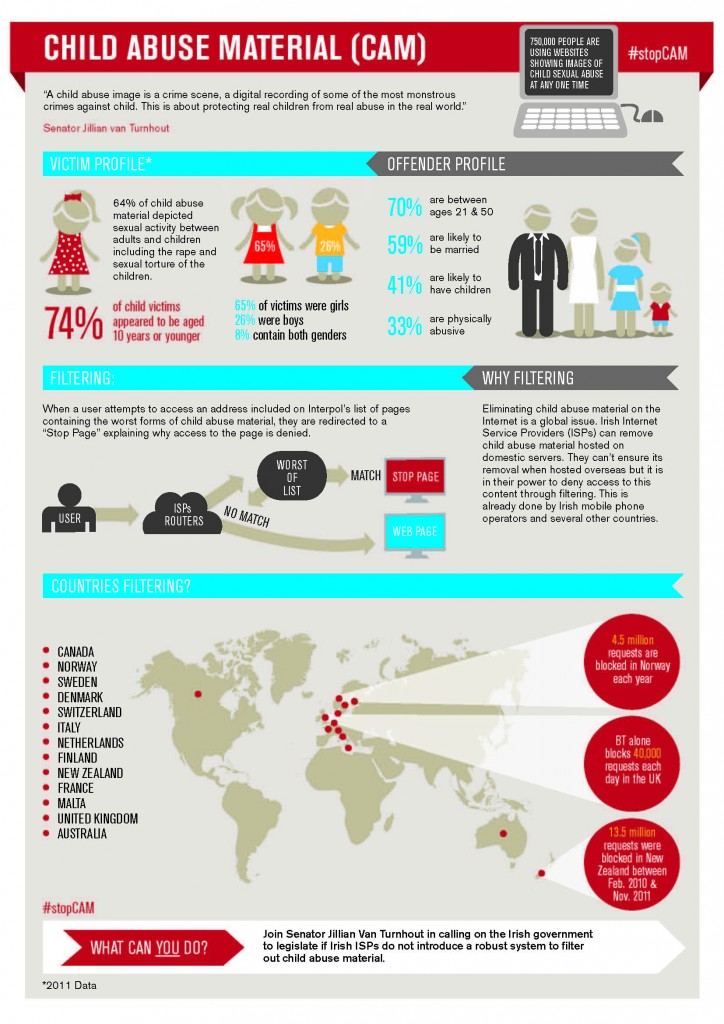
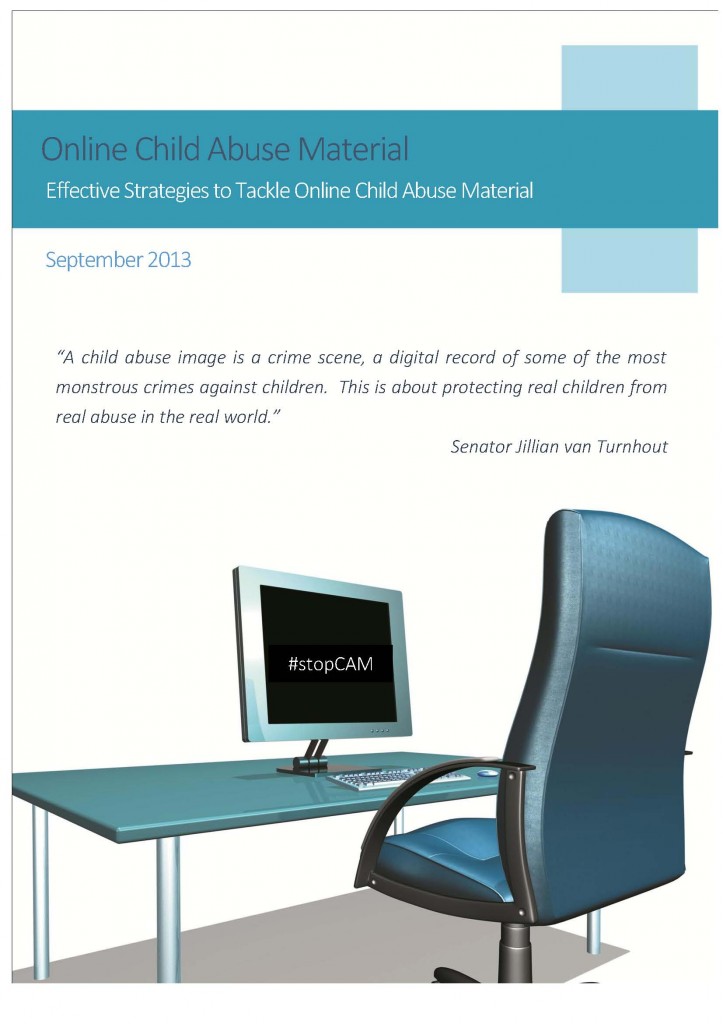
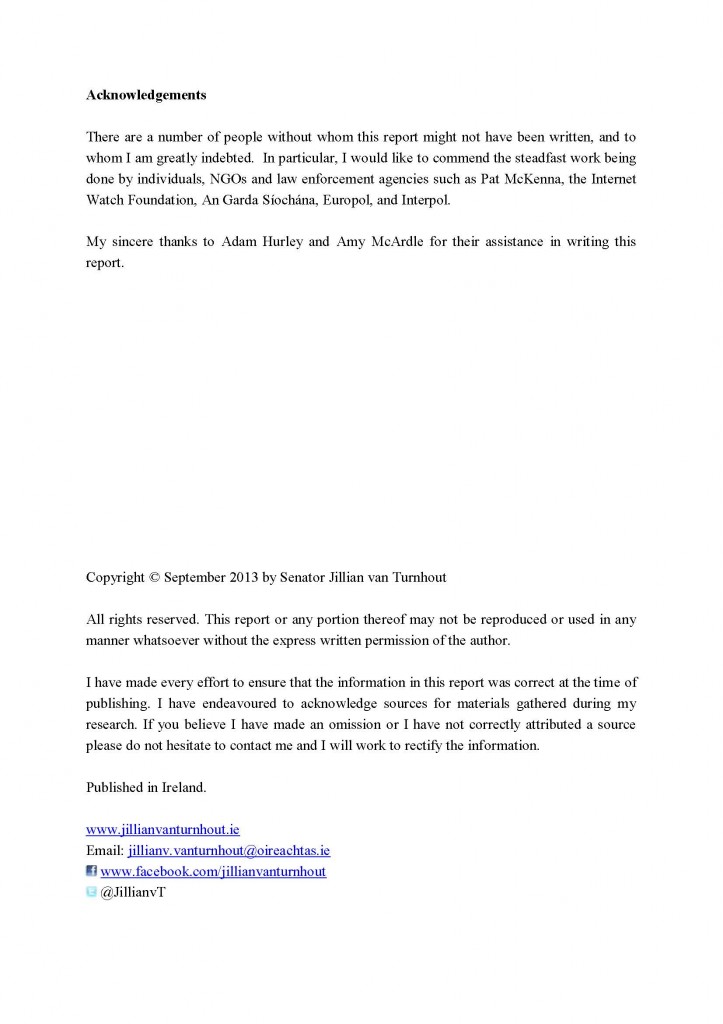
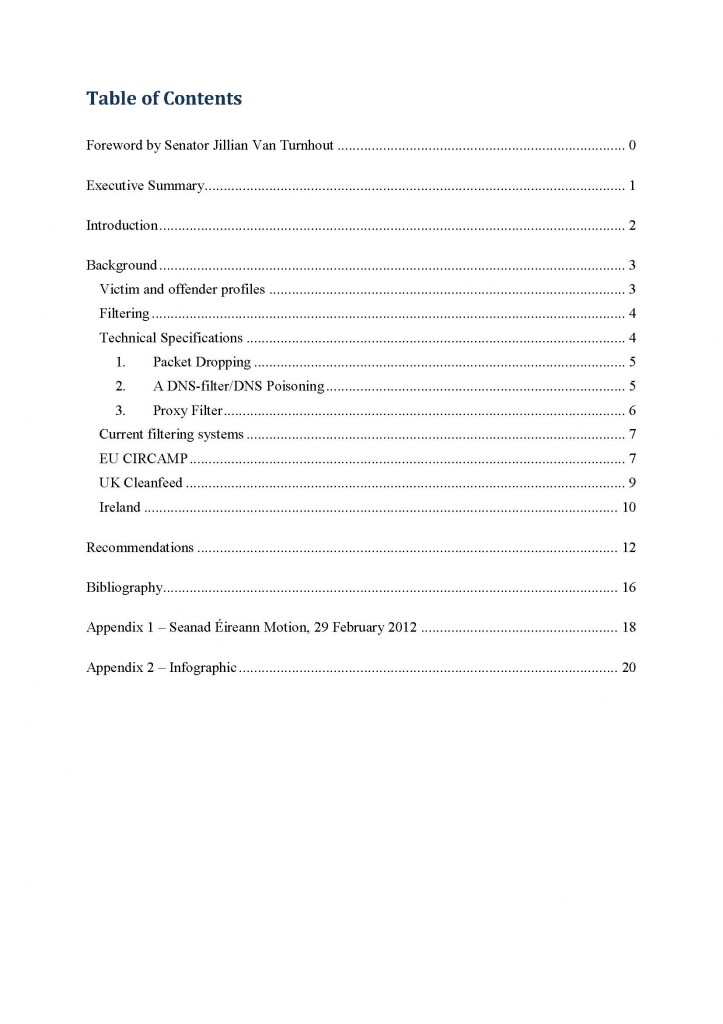
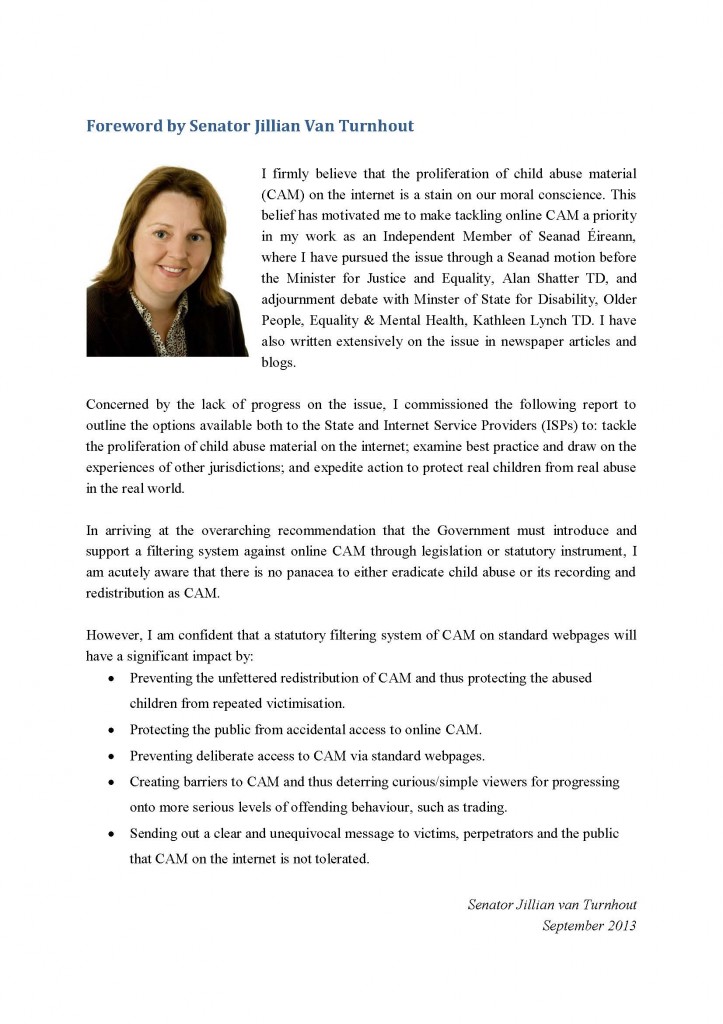
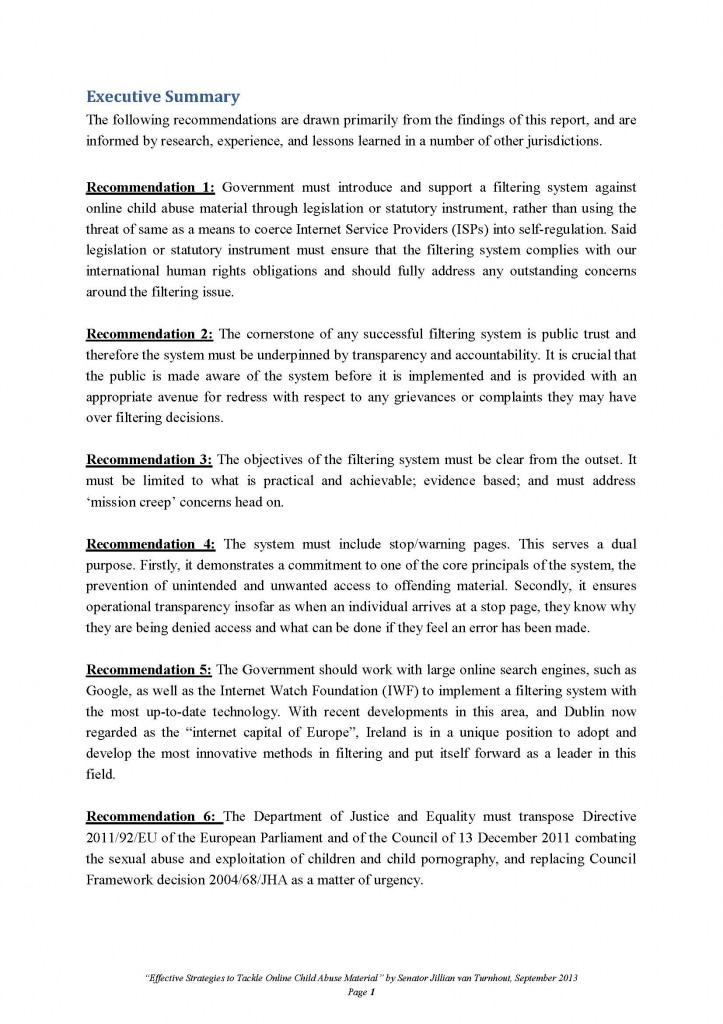
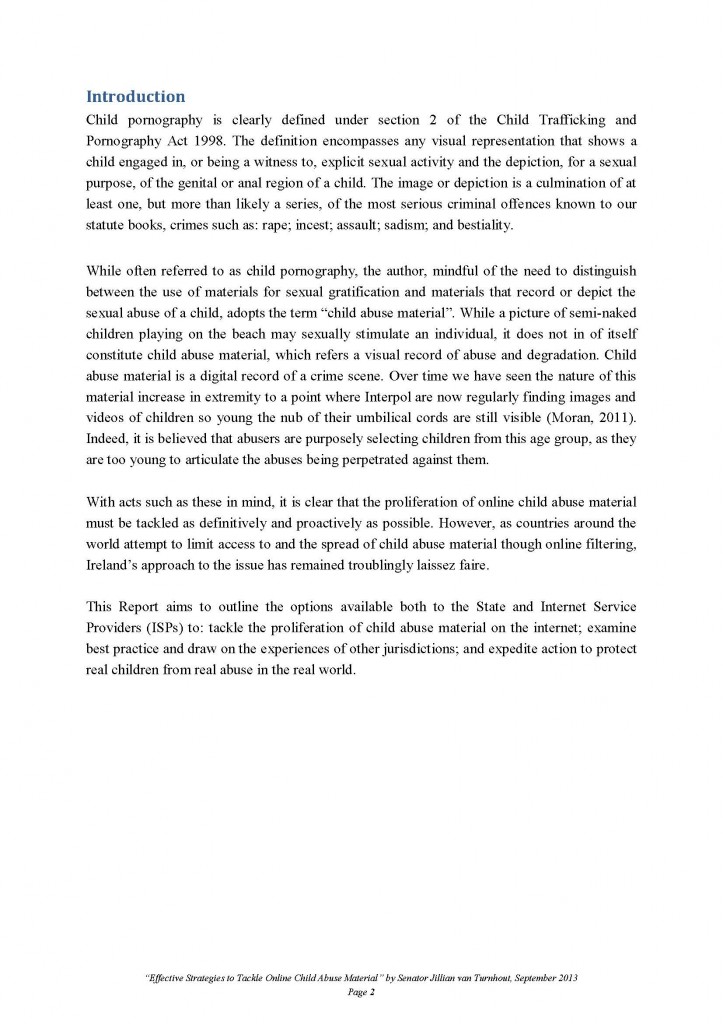
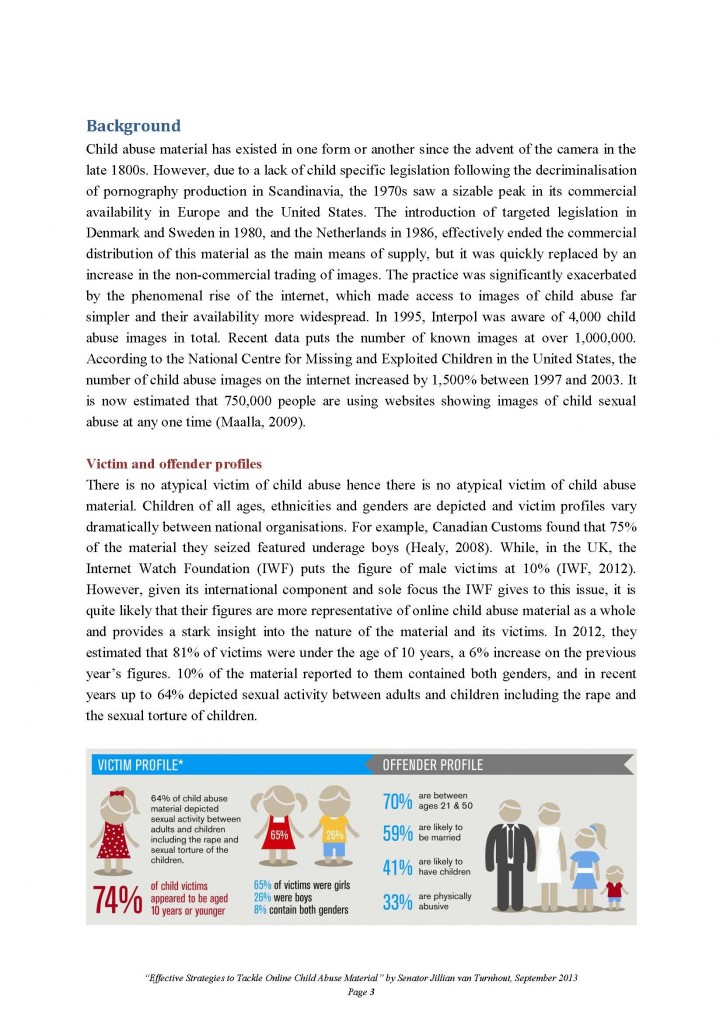
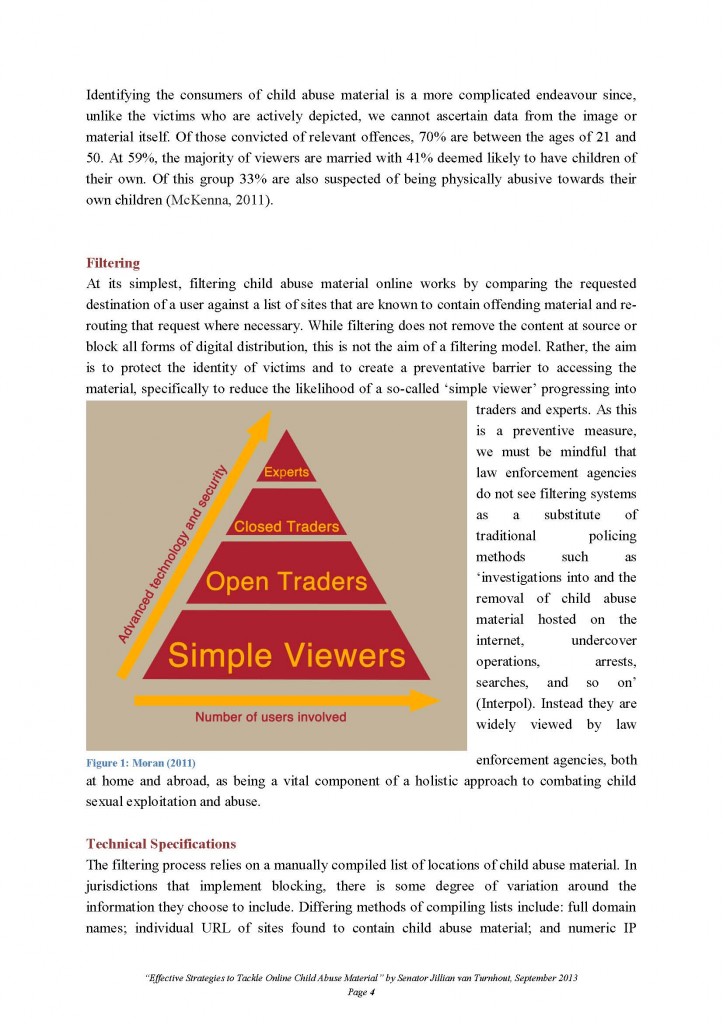
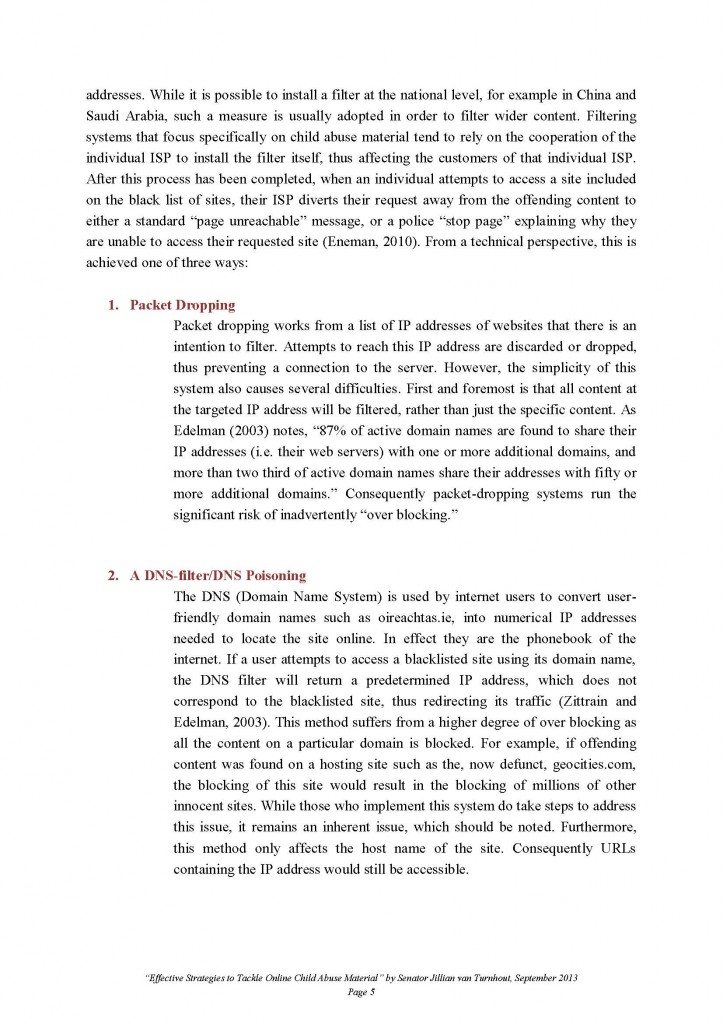
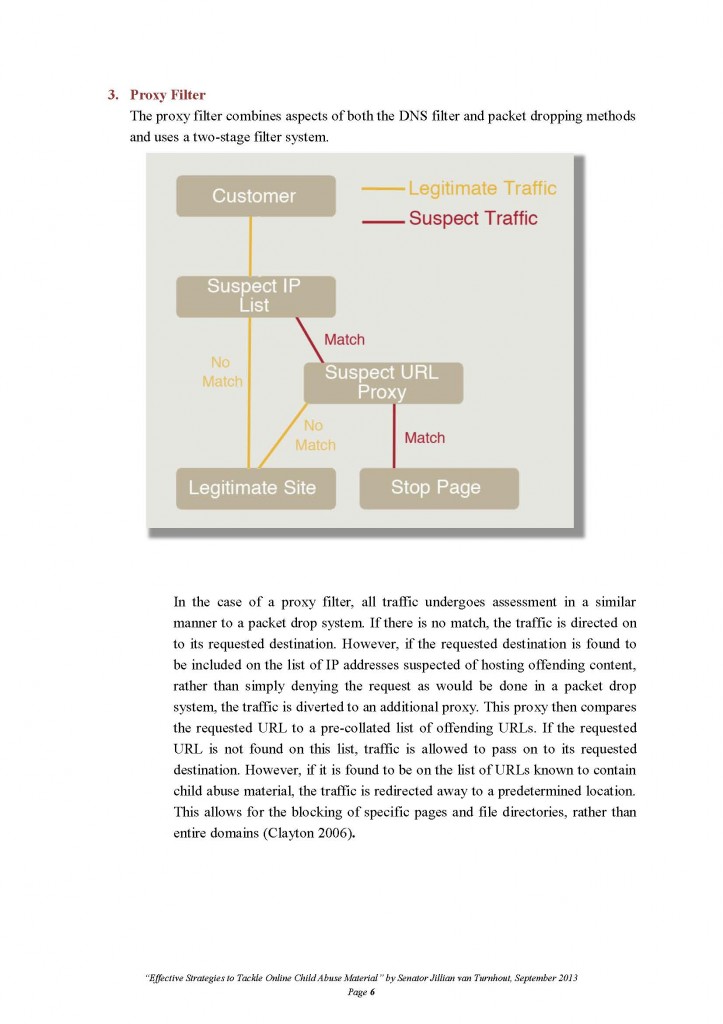
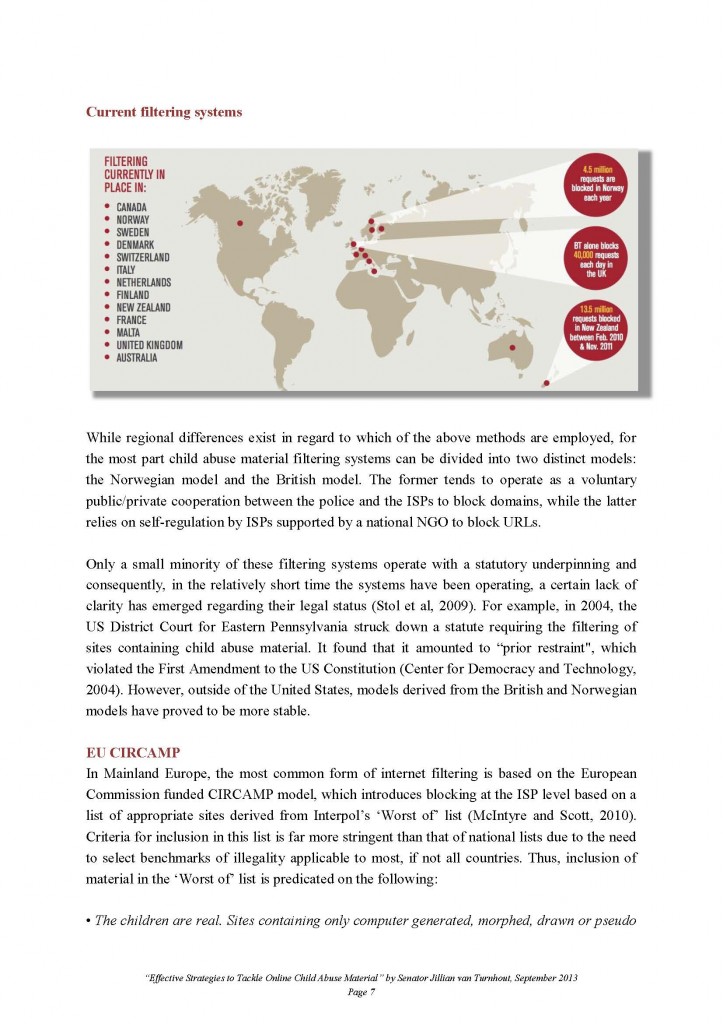
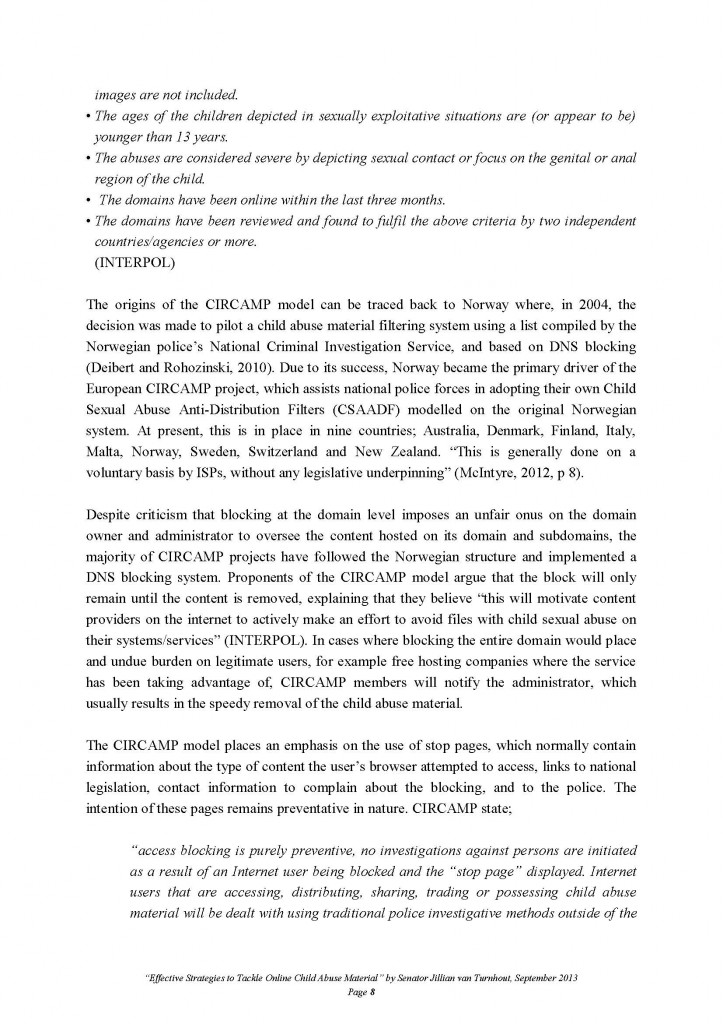
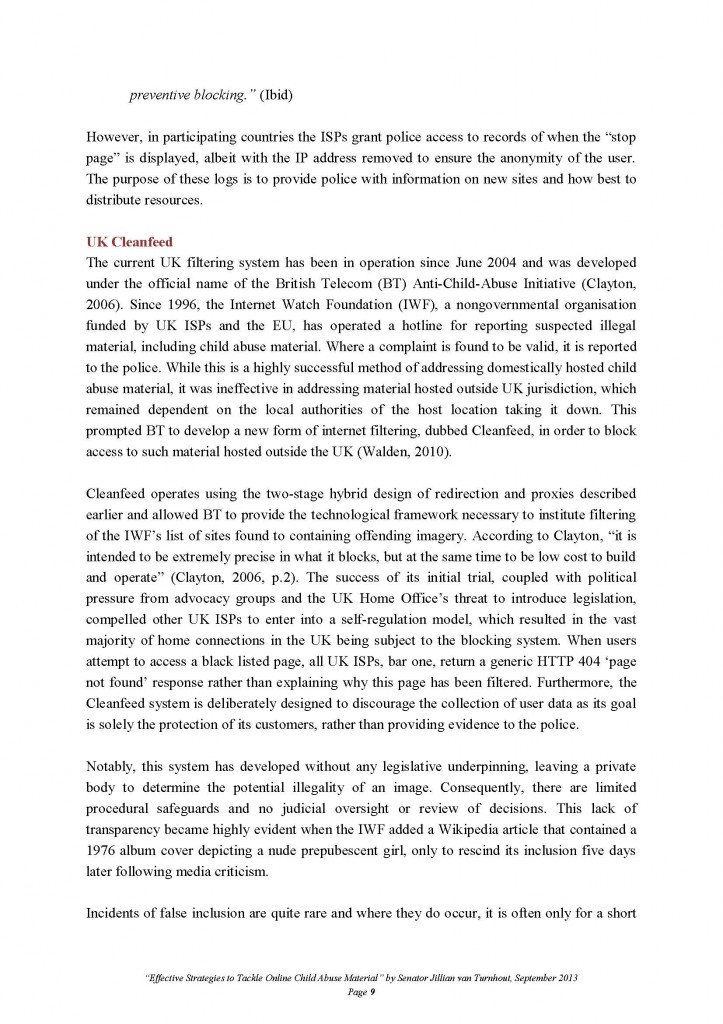
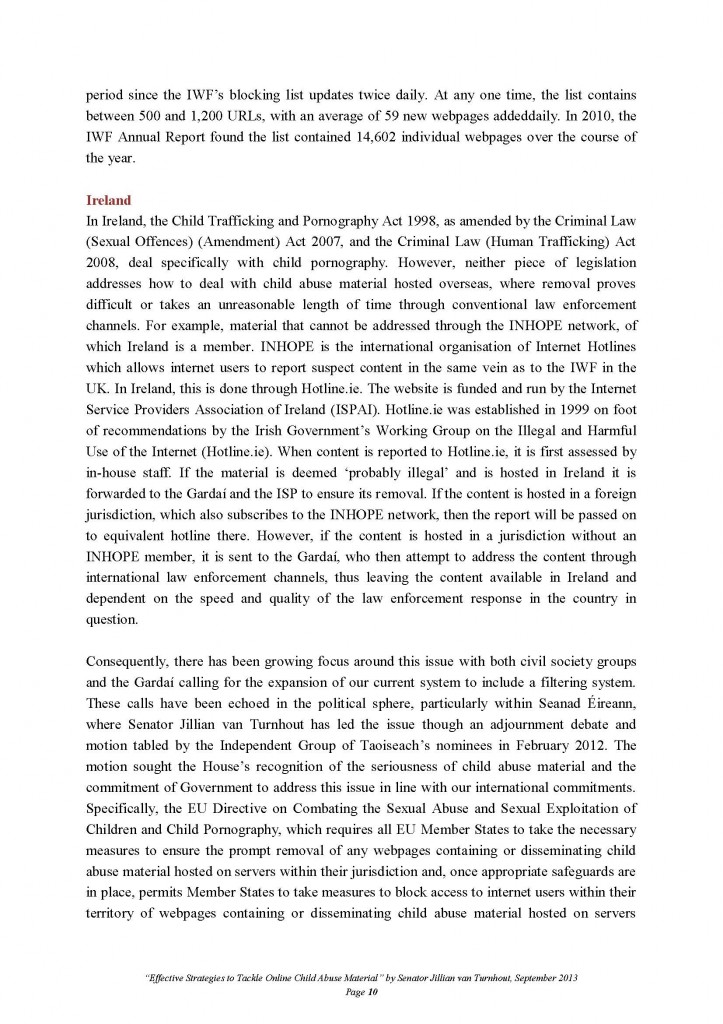
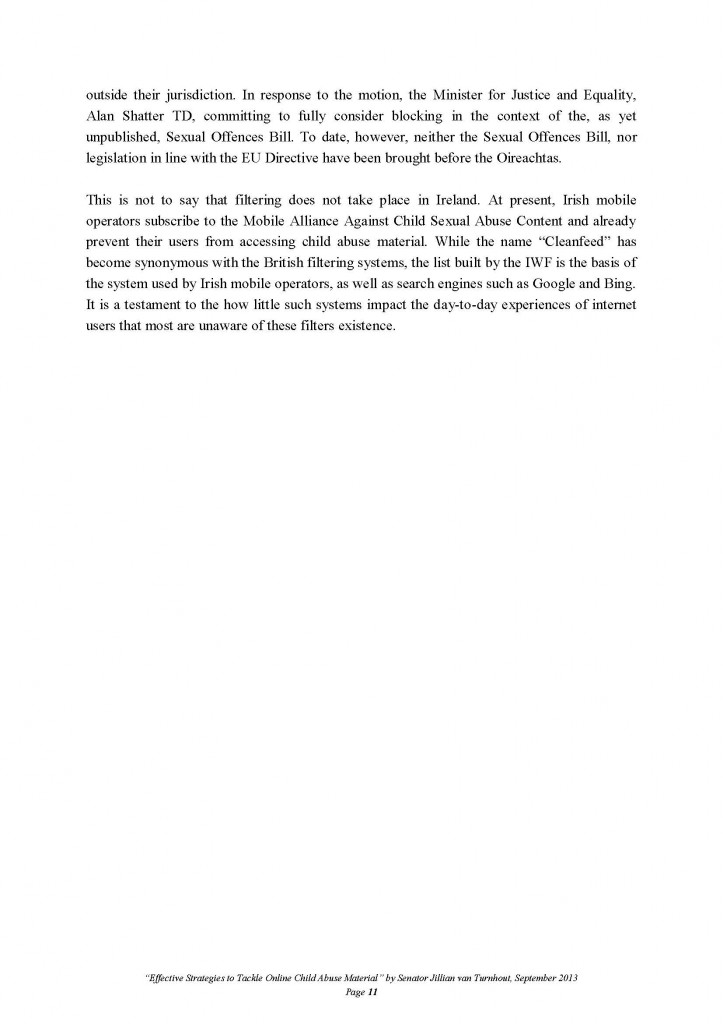
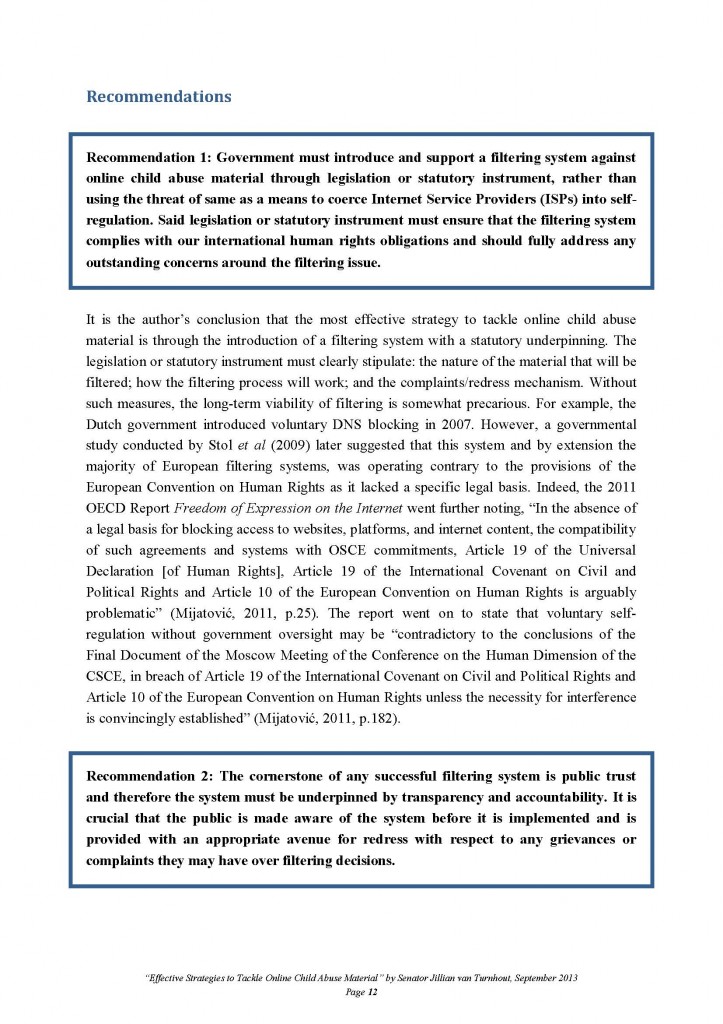
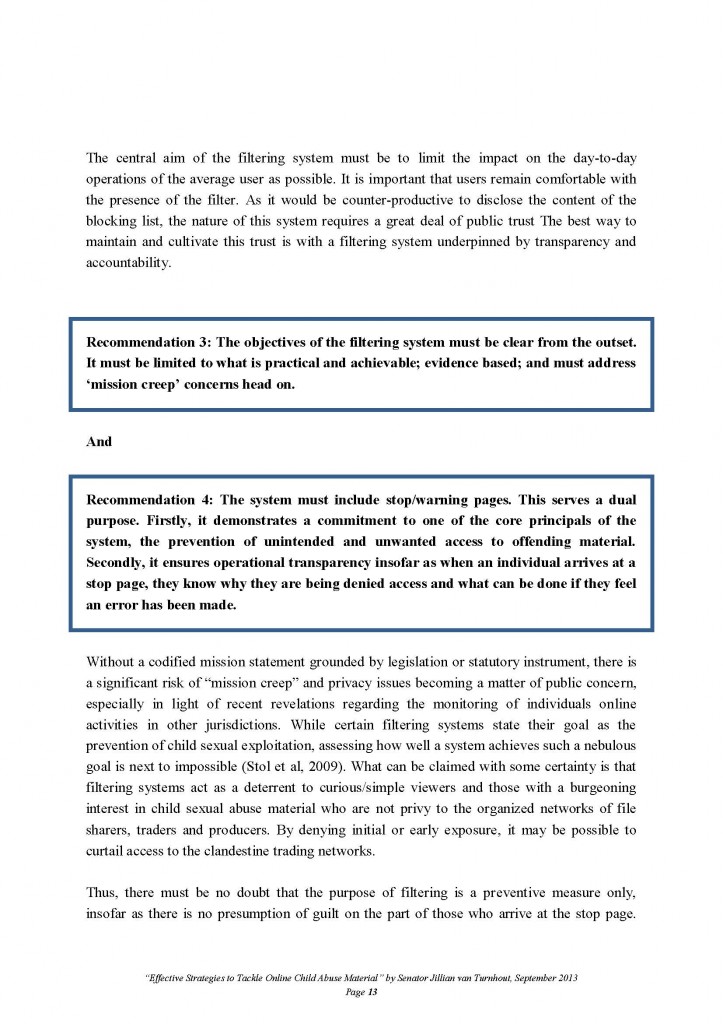
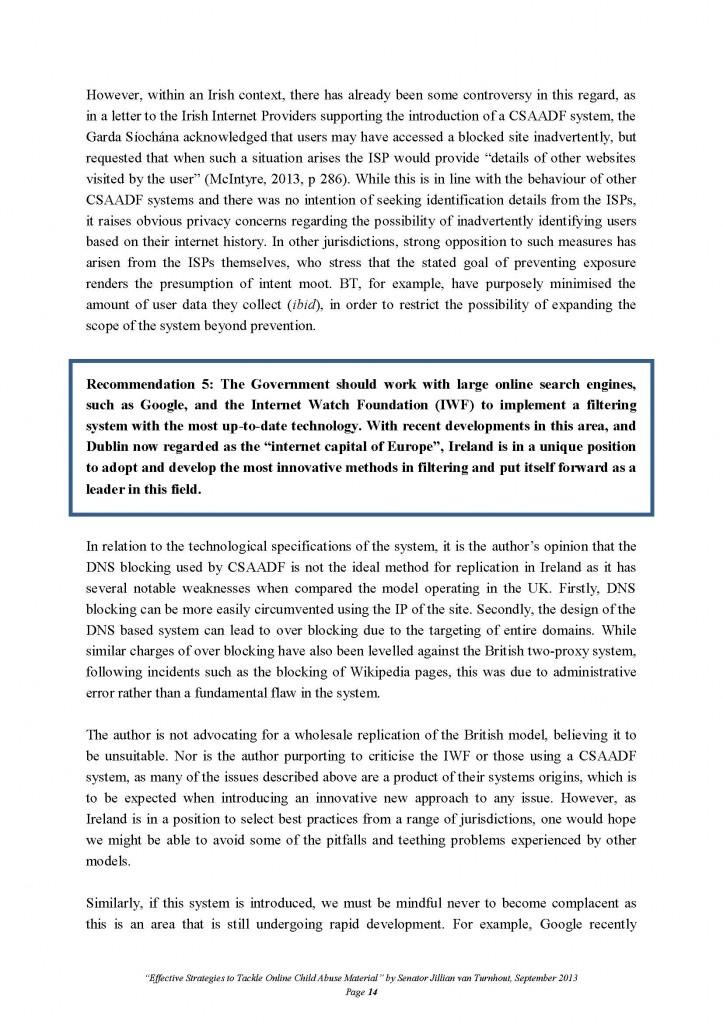
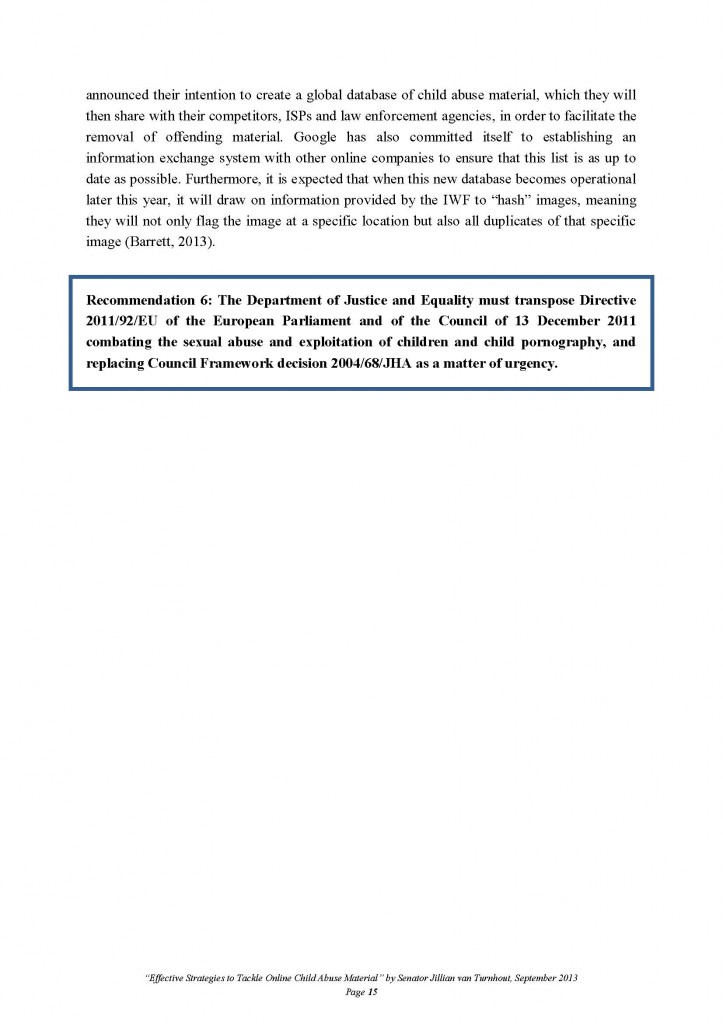
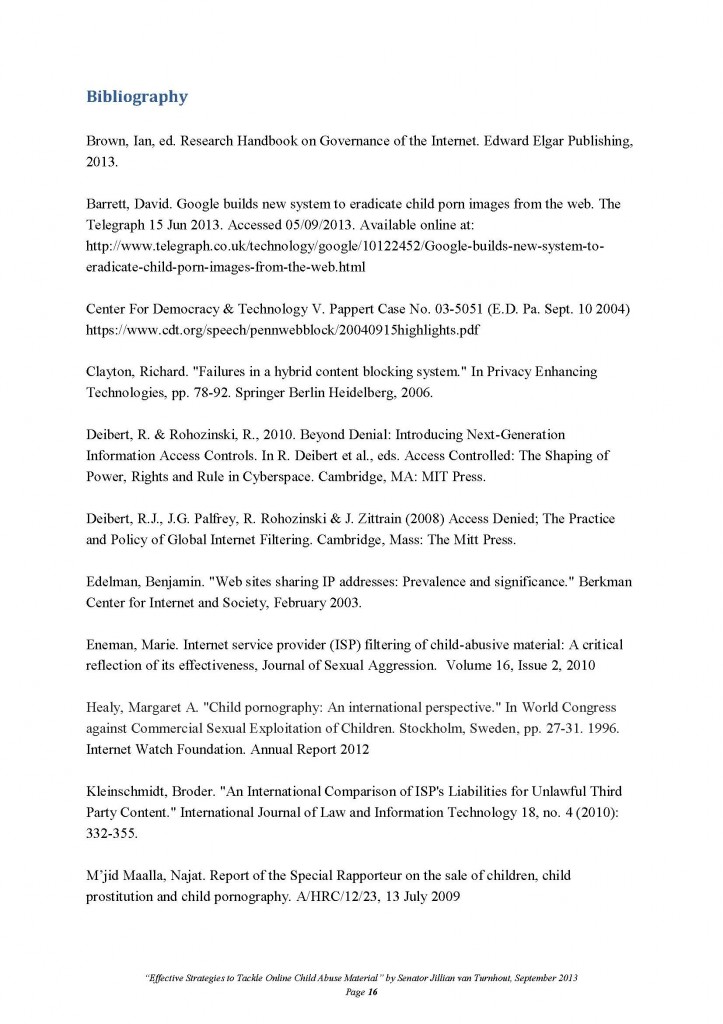
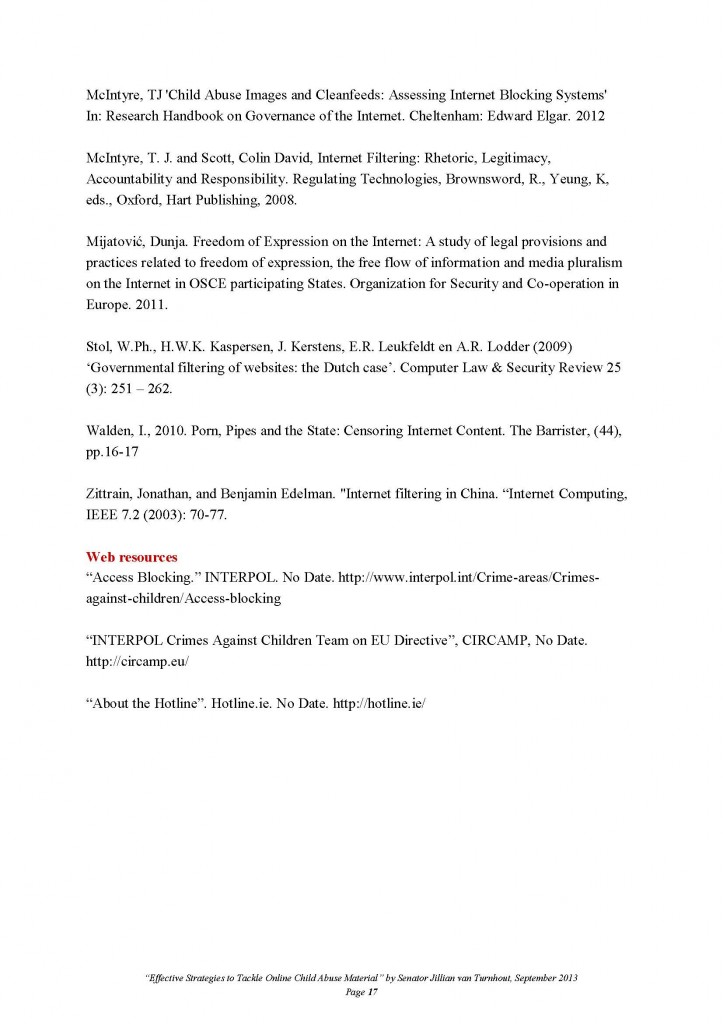
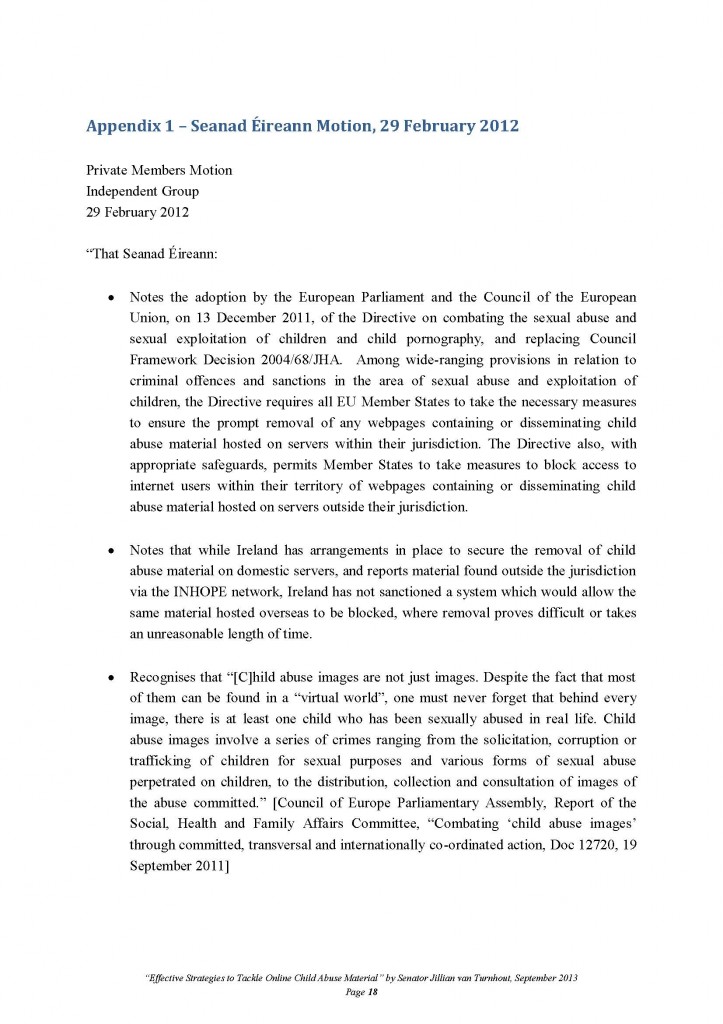
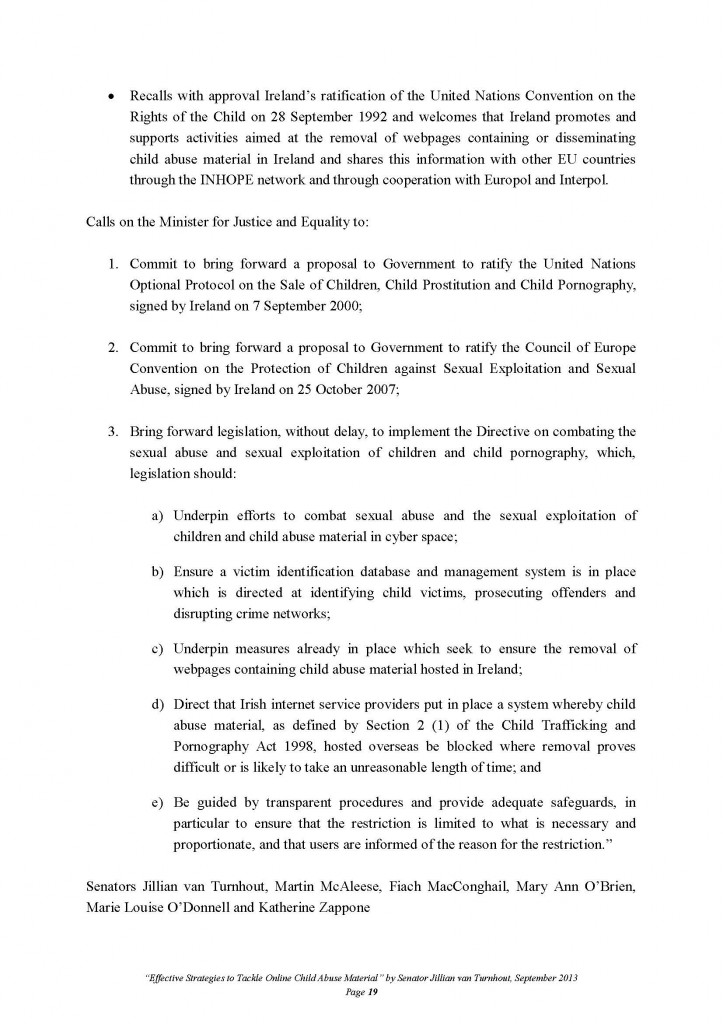
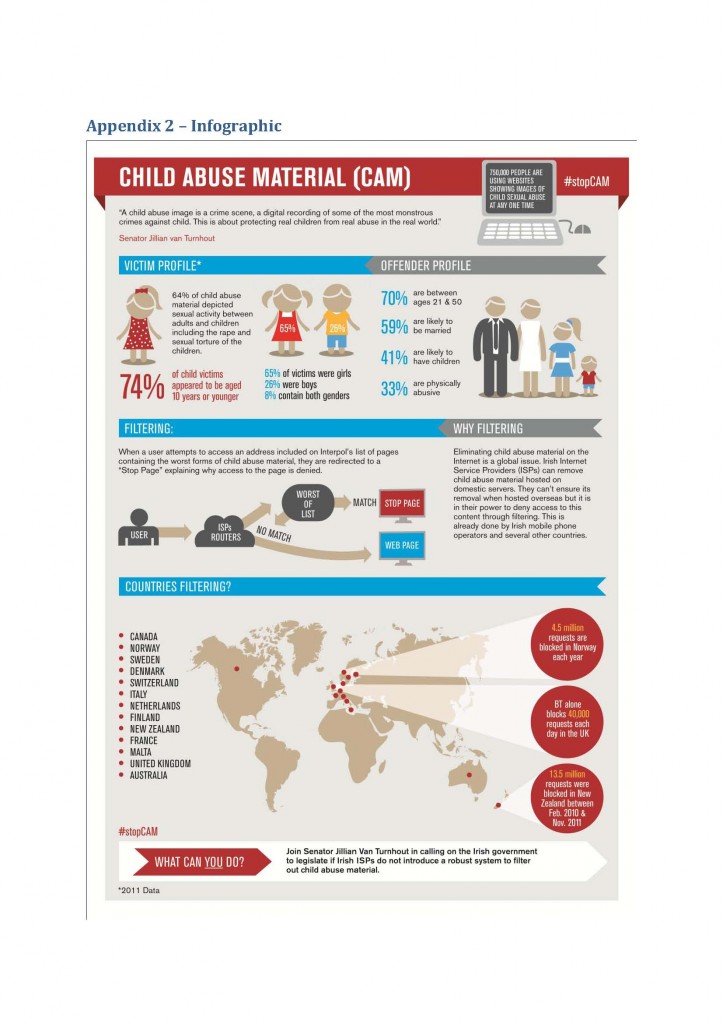
_PNG.png)